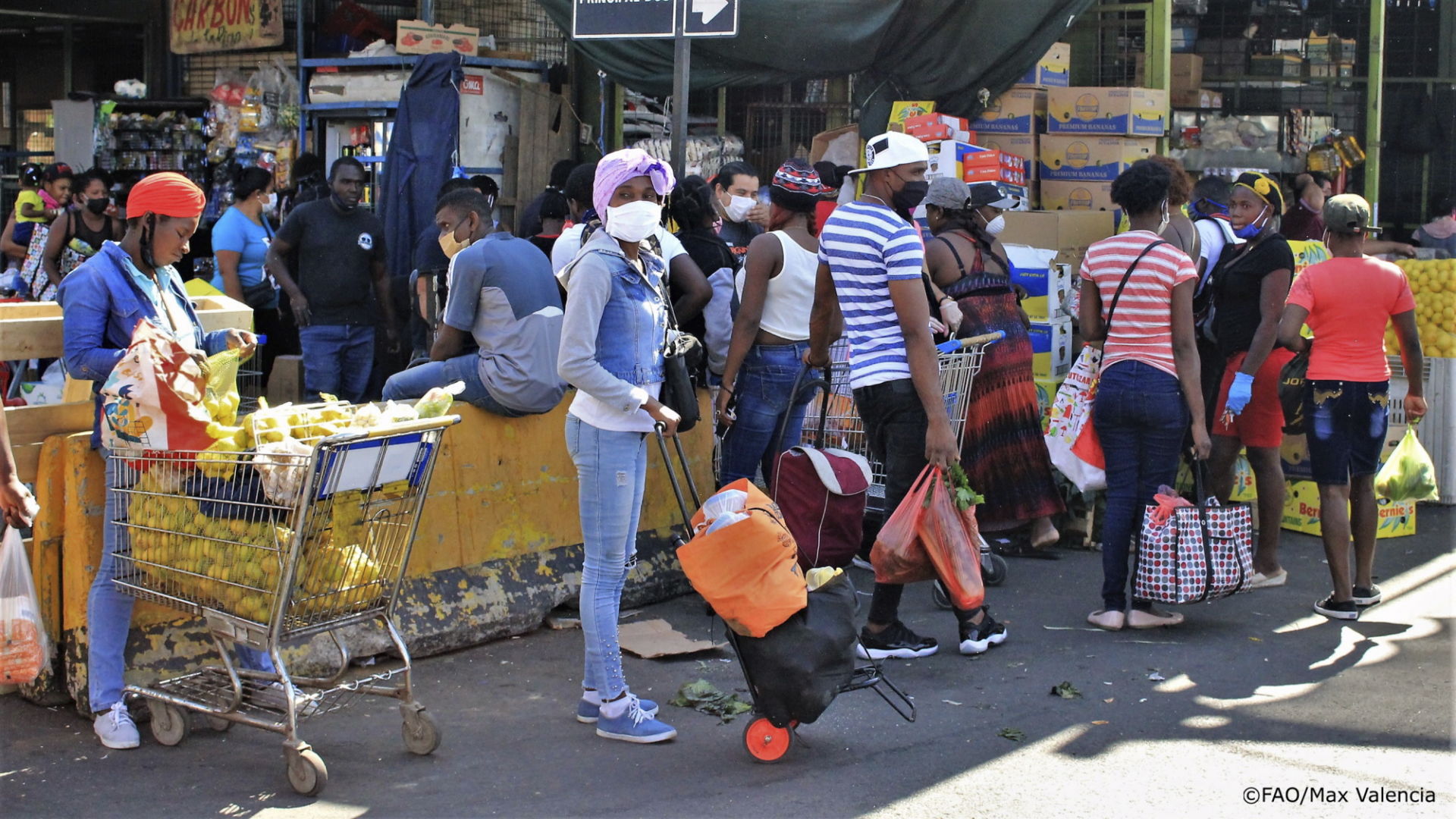Sustainable food systems can play a big role in ensuring the availability and access to safe, nutritious and affordable food, creating decent jobs and livelihoods, contributing to balanced territorial development and protecting the earth’s natural resources and biodiversity.
But our food systems are under pressure, be it from climate change, changing demographics, COVID-19 or other shocks. Transforming food systems to be more sustainable, resilient and inclusive requires a clear understanding of their different dimensions.
Sustainable food systems require inputs from multiple sectors including finance, industry, transport, energy, environment, education, health and urban development,
— FAO Investment Centre Director Mohamed Manssouri
The Food and Agriculture Organization of the United Nations (FAO), the European Commission’s Directorate-General for International Cooperation and Development (DG DEVCO) and the French Agricultural Research Centre (CIRAD) launched a series of webinars to introduce a methodology that enables broad-based rapid assessments of national food systems. Over 50 EU Delegations throughout the world intend to use these assessments as the basis for country discussions on the future of food systems.
In his opening address, Leonard Mizzi, Head of Unit at DEVCO, said that “we need to rethink our approach to food systems.” This food systems initiative is consistent with the principles of the EU’s Green Deal and Farm to Fork Strategy as well as those espoused in the 2021 United Nations Food Systems Summit.
“Access to affordable nutritious and quality food has been put into question. There are issues around logistics, labour, infrastructure, incomes and equity, climate change, natural disasters, transboundary diseases and pests, all of which call for a more systemic and transformative approach at local-regional and multilateral level,” he added.
This was echoed by FAO Investment Centre Director Mohamed Manssouri who suggested that other sectors can provide unique entry points and perspectives on food challenges.
“Food systems go beyond agriculture. Sustainable food systems require inputs from multiple sectors including finance, industry, transport, energy, environment, education, health and urban development,” he said.
Similarly, as we have all seen during the COVID-19 crisis, governments at provincial, district and municipal levels play a critical role in collaborating with Ministries and departments, private sector and civil society to address food systems problems.
A closer look
Ninon Sirdey Economics Researcher at CIRAD, who presented the proposed methodology with her colleague Helene David-Benz, Senior Economics Researcher at CIRAD, called this food systems analysis “‘assembling the puzzle’ because it aims to put together information from different sectors to deliver a new, systemic, dynamic and holistic vision of food systems.”
The proposed methodology will look at how environmental, governance and territorial, infrastructure and technology, political, socioeconomic and demographic drivers affect the ability of food systems to achieve the Sustainable Development Goals (SDGs) by contributing to core system goals as regards: food security, nutrition and health; socio-economy; territorial balance; and the environment.
Related Articles: The Importance of Investment and Farmer Innovation | How Blended Finance Can Help Farmers and Agribusinesses in the COVID-19 Era
Food systems actors face locally specific challenges, with varied sector impacts. It is not only at national level but often more at subnational level that change strategies can be defined and concrete actions implemented, relying on local opportunities to build a path towards more sustainable food systems. Based on a territorial perspective, the proposed food systems assessments get into subnational specificities as a prerequisite for such transformation.
Deepening the conversation
The analytical process aims to make policy-makers, decision-makers, donors and food system stakeholders more aware of the systemic nature of food systems, including the trade-offs between competing interests and goals.
The idea is to deepen national conversations on food issues related to inclusiveness, equity, territorial balance, rural livelihoods and effective governance – and to promote long-term multisectoral policy dialogue and more effective and transformative interventions.
EU Delegations and FAO Representations, together with national governments and food systems actors, play an important role in stewarding the process, helping to move this agenda forward and deliver results at scale.
Manssouri noted the timeliness of this work, adding that it can benefit from existing joint programmes like the Global Network Against Food Crises, the European Union-FAO First Programme, which provides policy support at country level, and the FAO Hand-in-Hand Initiative with its geospatial data platform.
“Our food systems work represents a tangible action in support of our organizations’ high-level policy goals at global and country levels. They are equally aligned to the goals and the emerging country processes in support of the 2021 United Nations Food Summit,” he said.
Editor’s Note: The opinions expressed here by Impakter.com columnists are their own, not those of Impakter.com. — In the Featured Photo: Lo Valledor, the main wholesale market in Chile, continues to provide the public during this health emergency with all the protective measures, April 18, 2020, Santiago, Chile. Featured Photo Credit: ©FAO/Max Valencia











